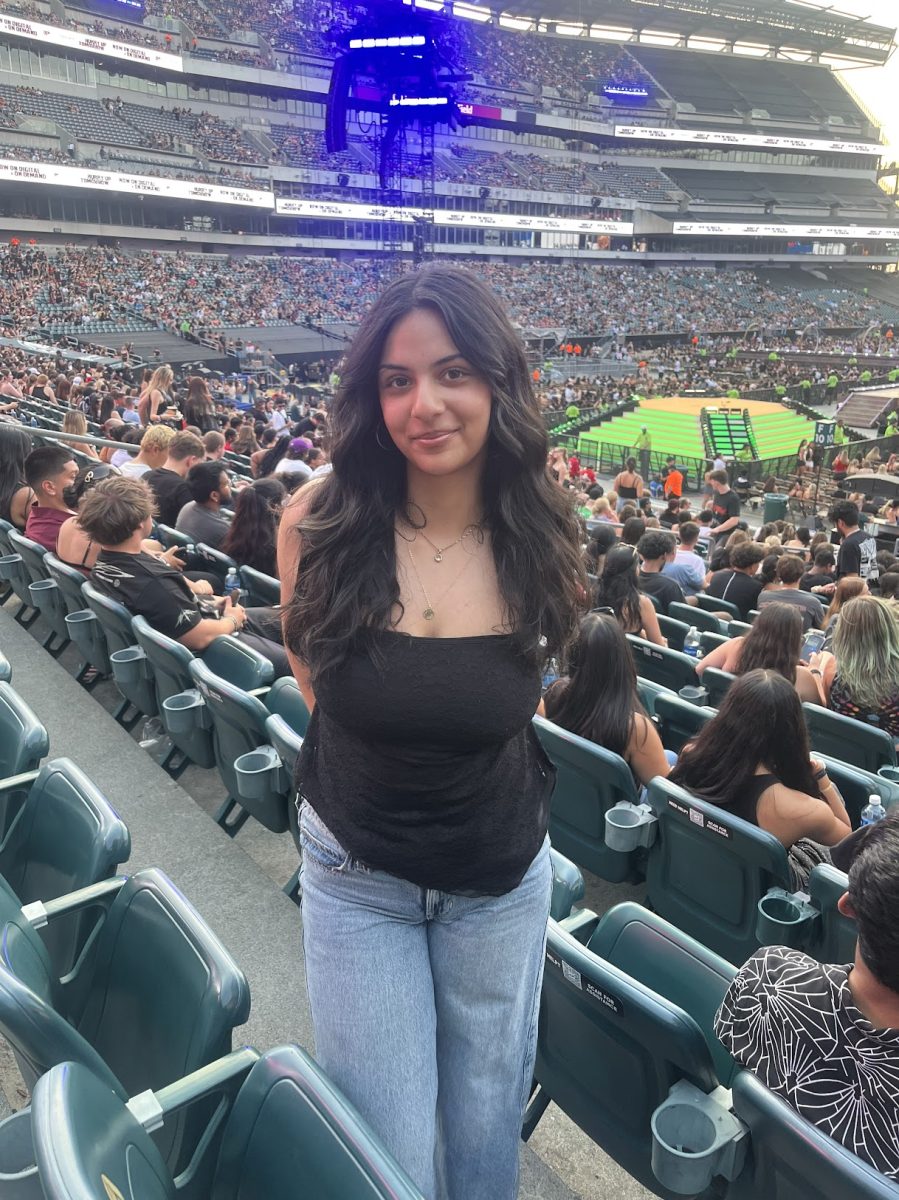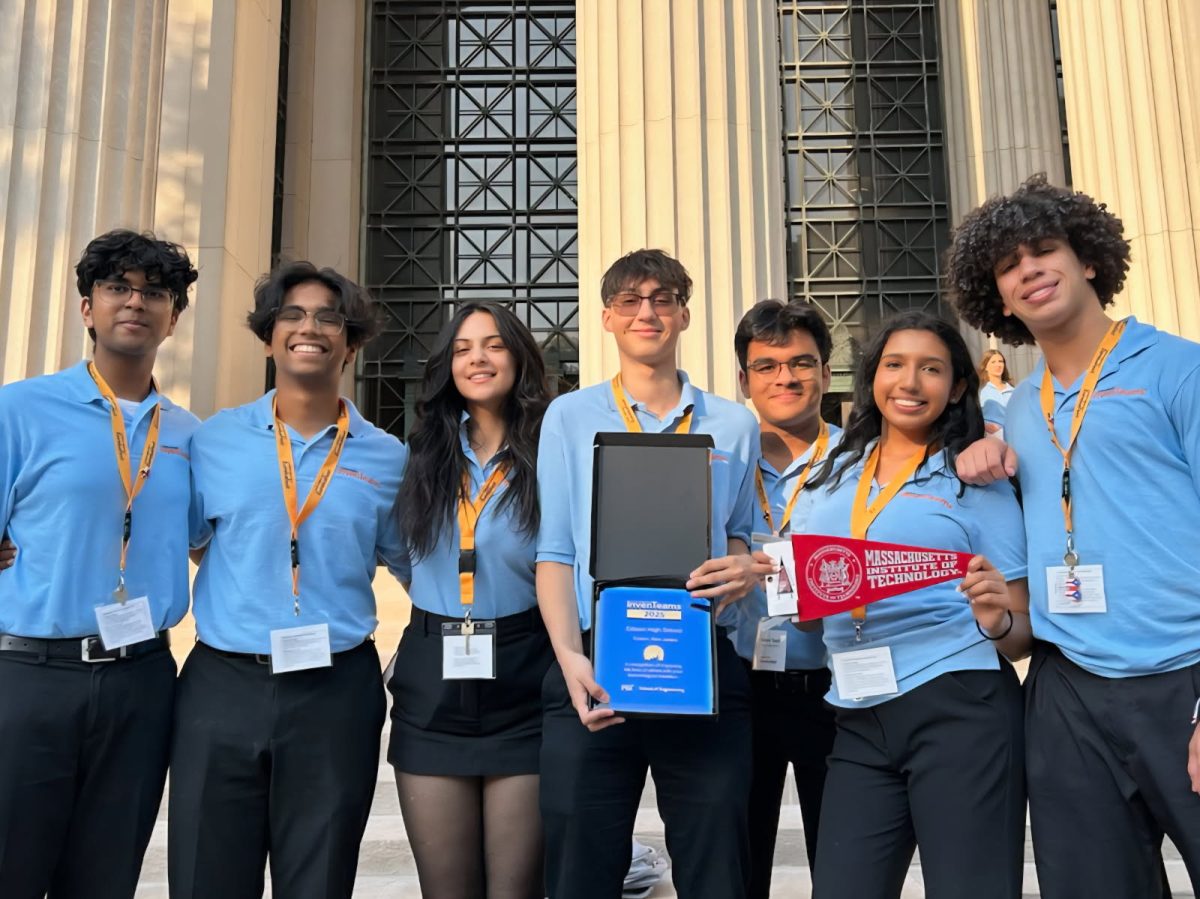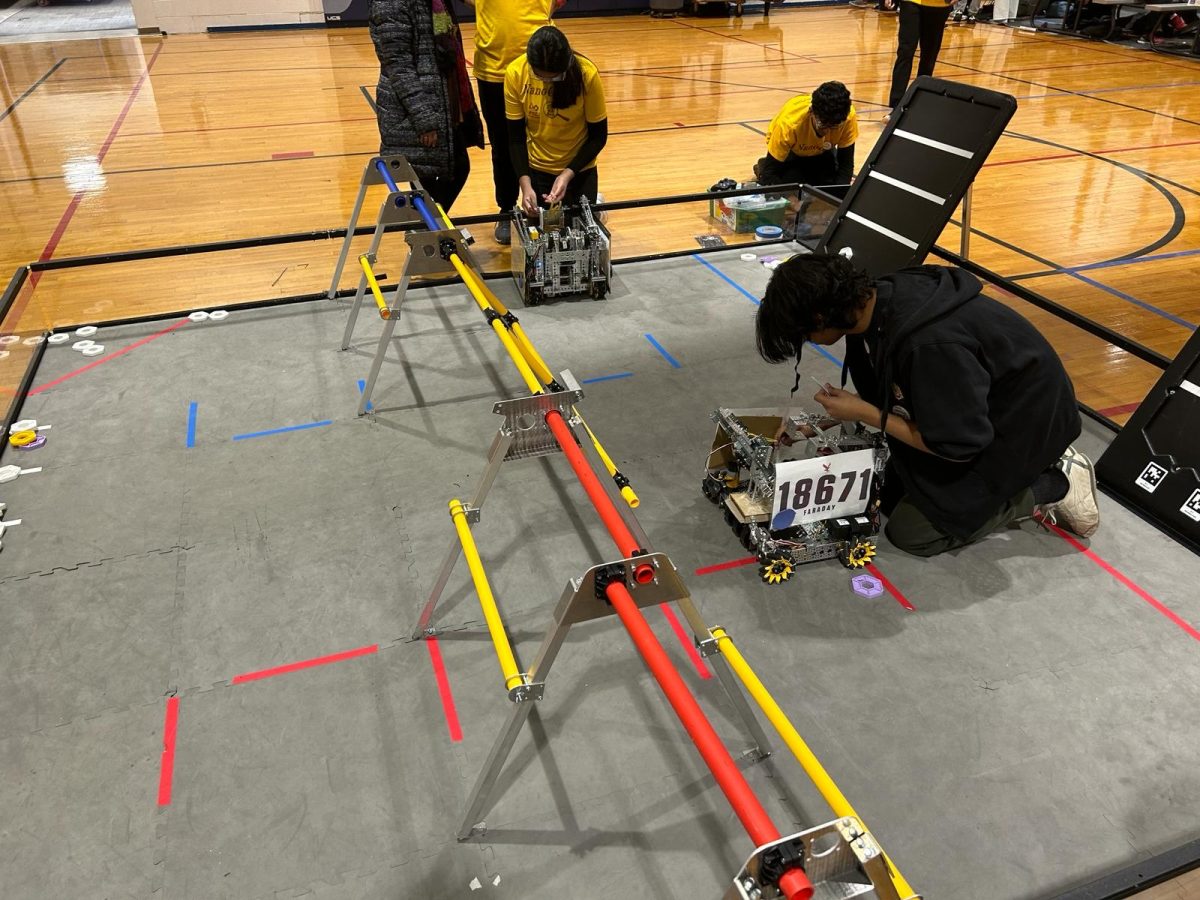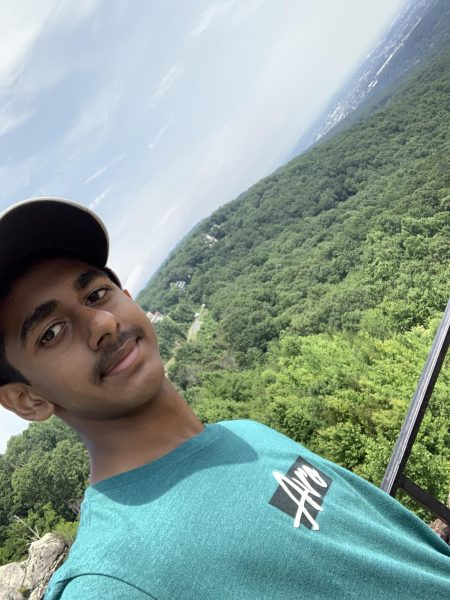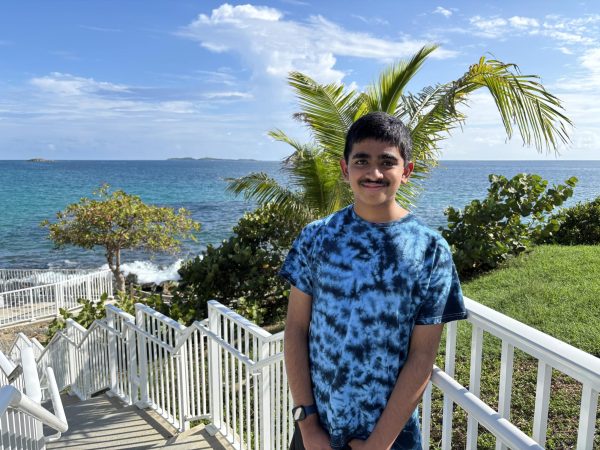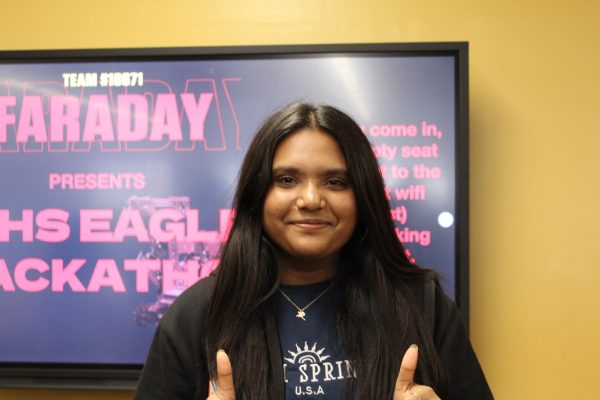On January 20, Team Faraday #18671, Edison High’s own robotics team, participated in a competition hosted by Chatham High School. This competition, run by the FIRST (For Inspiration and Recognition of Science and Technology) organization, required the robot to complete designated tasks in an allotment of time in order to earn points. The robot competed against the robots of several other teams from across Central Jersey.
Each of these events contain a series of matches in which two pairs of teams compete against each other.
At the start of each match, the robot is given thirty seconds for an “autonomous” section, during which the use of pre-coded directions and sensors makes the robot perform a set of actions without the use of manual control. If the robot completes its requirements during the autonomous round, the team will receive fifty to sixty points.
The next part of the match is called the TeleOp period, during which two drivers, Aditya Rao ’26 and co-captain Mithil Mishra ’25, take control of the robot and try to complete as many tasks as they can. Completion of each task earns them different point values for their team.
“One important part of taking control of the robot during each match is communicating with my co-driver in order to work most efficiently and gain the most points possible,” said Rao.
The last thirty-second period of the match is called End Game. During this part, there are many new opportunities for the robot to score more points if it completes these tasks within the allotted time.
Unfortunately, Team Faraday did not have enough time to code for the autonomous round.
“Though it might seem simple, coding an autonomous system requires a large amount of trial and error, taking up large portions of time. Also accounting for the time to get everything else working, such as the camera detection and RoadRunner, Coding the full autonomous would take a good amount of time” said Head Coder Rithvik Banerjee ‘26.
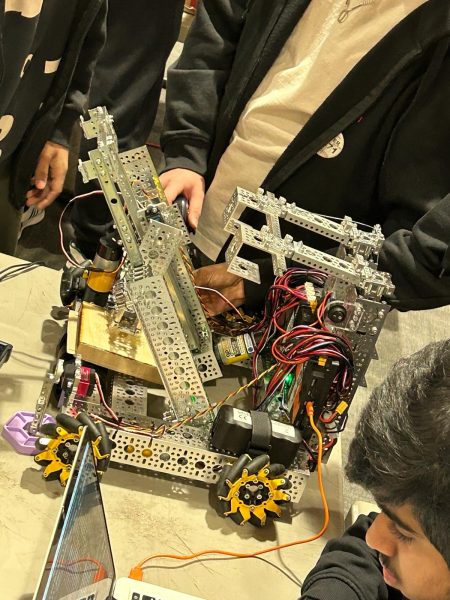
Building was finalized a day before the competition, and the coders were unable to run enough tests nor troubleshoot sufficiently to get the code working. During the TeleOp match, however, the robot was controllable to an extent, so the drivers were able to score some points.
There was a definite improvement in performance compared to the team’s first competition.
The next event coming up for this team is regionals. Therefore, all team members will be putting in as much effort as they can to create a more improved robot which will work properly and effectively.
The team has decided to work on their time management skills.
“We have progressed since our last competition, but there’s still so much to do,” said Mishra.





































